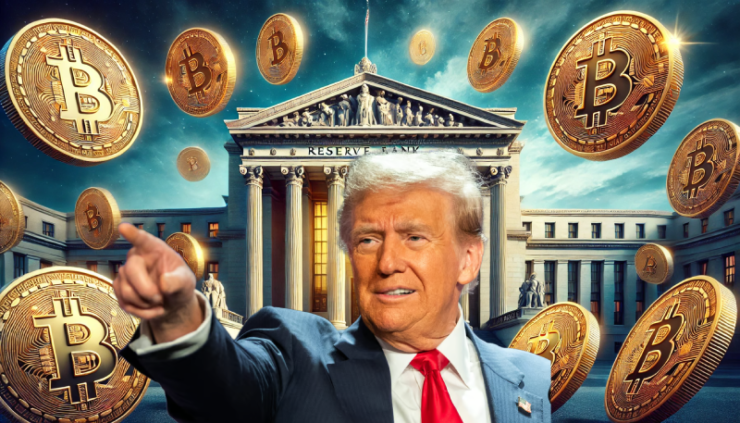President Donald Trump hosted the first-ever White House Crypto Summit on March 7, solidifying his administration’s commitment to integrating Bitcoin into the U.S. financial system. The summit, held in the State Dining Room, brought together top crypto executives and federal officials to discuss the nation’s digital asset strategy. The event marked a significant shift in U.S. policy, with Trump announcing the establishment of a Strategic Bitcoin Reserve (SBR) and a U.S. Digital Asset Stockpile.
Flanked by Treasury Secretary Scott Bessent, Commerce Secretary Howard Lutnick, and AI and Crypto Czar David Sacks, Trump emphasized his administration’s stance on Bitcoin. “Unfortunately, in recent years, the U.S. government sold tens of thousands of additional Bitcoin that would have been worth billions of dollars… Never sell your Bitcoin,” Trump said. He added that he hoped lawmakers would introduce comprehensive cryptocurrency regulations before the August recess.
The newly established Strategic Bitcoin Reserve will be funded exclusively through Bitcoin seized in criminal and civil forfeiture cases, formalizing the U.S. government’s recognition of Bitcoin as a strategic asset. The reserve, housed within the U.S. Treasury, is expected to hold an estimated 200,000 Bitcoin. Trump clarified that while assets in the Digital Asset Stockpile, comprised of non-Bitcoin cryptocurrencies, may be sold by the Treasury, the Bitcoin in the SBR will not be liquidated.
Despite the groundbreaking announcement, Bitcoin’s price fell more than 6% following the summit, dropping from $90,400 to $84,979.
Investors had anticipated that the government would acquire additional Bitcoin, and the lack of a purchasing plan led to short-term disappointment. However, industry leaders believe the long-term implications of the reserve could be transformative.
Industry Leaders React to White House Summit
The summit drew key figures from the crypto industry, including Coinbase CEO Brian Armstrong, Robinhood CEO Vlad Tenev, Chainlink’s Sergey Nazarov, and Ripple Founder Brad Garlinghouse. Many attendees expressed optimism about the administration’s approach to crypto regulation. “The U.S. won the internet, and the U.S. should win crypto as well,” said Tyler Winklevoss, co-founder of Gemini.
Trump’s commitment to ending what he called the government’s “war on crypto” was widely welcomed. His administration has already taken steps to roll back regulatory scrutiny, including pausing or dismissing litigation against several major cryptocurrency firms such as Coinbase, Kraken, and Robinhood.
Financial Products and Institutional Adoption
The creation of the Bitcoin reserve is expected to catalyze new financial products built around Bitcoin. Joe Burnett, head of market research at Unchained, predicted an increase in reserve-backed lending mechanisms and alternative settlement solutions. “Expect to see new financial products designed around Bitcoin, from reserve-backed lending mechanisms to cross-border settlements that bypass outdated systems,” Burnett said.
The summit also highlighted the growing role of Bitcoin-based decentralized finance (BTCFi). The sector experienced a surge in 2024, driven by Bitcoin’s April halving event and infrastructure development. Data from DefiLlama shows that Bitcoin’s network total value locked (TVL) rose from $307 million in January 2024 to $6.5 billion by year-end, marking a 2,000% increase. Babylon, a Bitcoin staking platform, was responsible for over 80% of the BTCFi TVL.
The Treasury and Commerce Departments will now explore pathways for accumulating additional Bitcoin holdings for the reserve. However, Trump’s pro-crypto stance has raised concerns about potential conflicts of interest. His involvement with the $TRUMP meme coin, which reportedly generated $350 million in three weeks, has drawn scrutiny. The digital asset, controlled largely by World Liberty Financial, has led to questions about the intersection of Trump’s personal business and official policy decisions.
Meanwhile, regulatory uncertainty remains a significant factor. While the summit highlighted the administration’s commitment to fostering crypto innovation, it did not provide clarity on potential legislative frameworks. The bipartisan Senate bill addressing stablecoin regulations remains under consideration, and key tax policies affecting digital assets were not discussed at the event.





